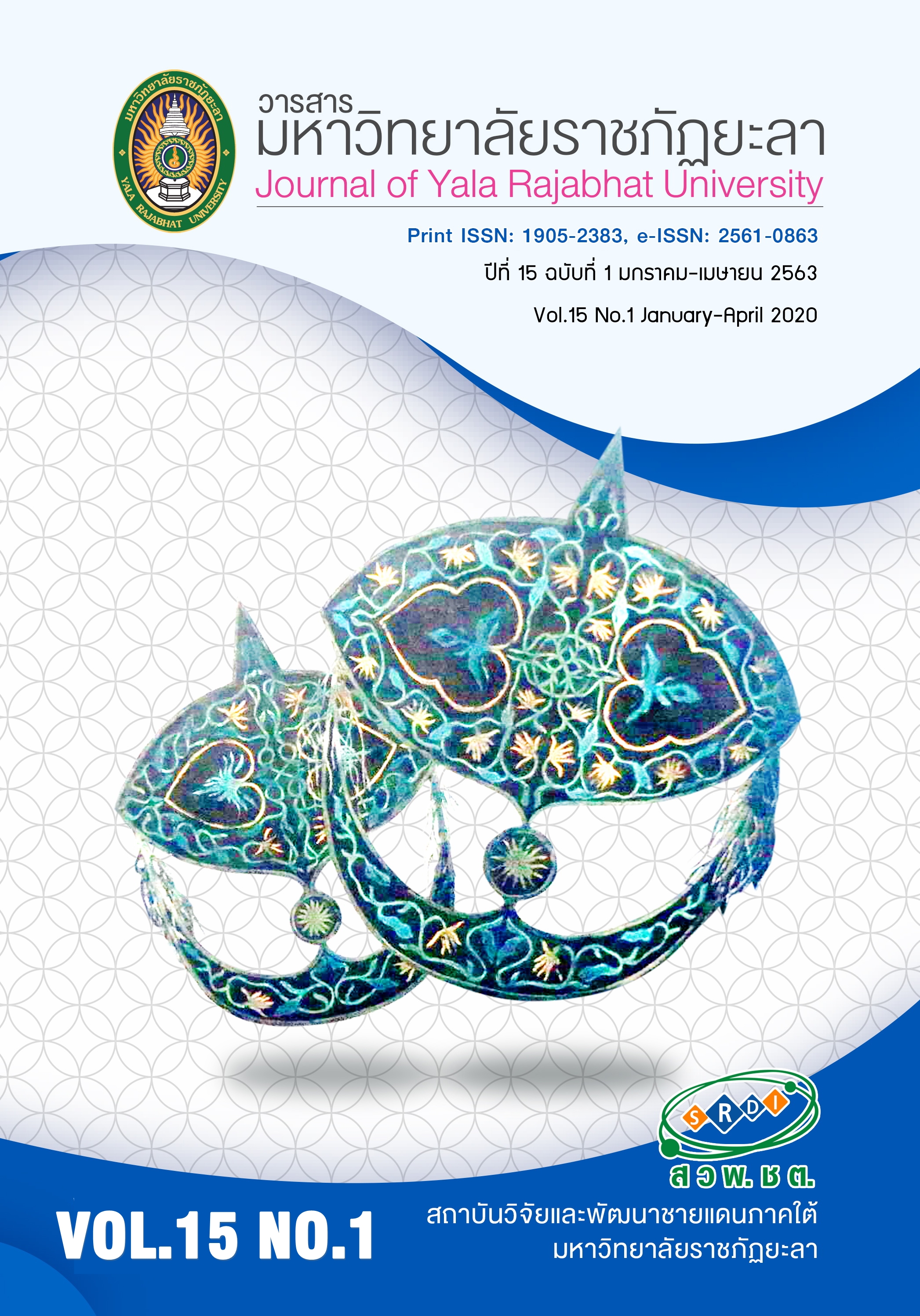การสอนภาษาที่เน้นภาระงานเพื่อส่งเสริมความสามารถใน การฟัง พูด ภาษาอังกฤษ และความมั่นใจในตนเองของนักเรียนชั้นประถมศึกษาปีที่ 3
Main Article Content
บทคัดย่อ
การวิจัยครั้งนี้มีจุดประสงค์(1) เพื่อศึกษาความสามารถในการฟัง พูดภาษาอังกฤษของนักเรียนหลังการเรียนการสอนภาษาที่เน้นภาระงาน (2) เพื่อเปรียบเทียบความมั่นใจในตนเองก่อนและหลังการเรียนการสอนภาษาที่เน้นภาระงาน กลุ่มเป้าหมายที่ศึกษาได้แก่นักเรียนชั้นประถมศึกษาปีที่3โรงเรียนมงฟอร์ตวิทยาลัยแผนกประถม จำนวน 49 คน ที่เรียนวิชาภาษาอังกฤษหลัก (อ13101) ภาคเรียนที่ 2 ปีการศึกษา 2559 เครื่องมือที่ใช้ในการเก็บข้อมูลคือ แบบประเมินความสามารถในการฟัง พูดภาษาอังกฤษที่ใช้ในการเก็บข้อมูลหลังการเรียนจบในแต่ละแผนการจัดการเรียนรู้และแบบวัดความมั่นใจในตนเองที่ใช้ในการประเมินก่อนและหลังการทดลอง วิเคราะห์ข้อมูลโดยหาค่าเฉลี่ย ส่วนเบี่ยงเบนมาตรฐาน และค่าร้อยละของความสามารถทางการฟัง พูดภาษาอังกฤษ และเปรียบเทียบความมั่นใจในตนเองของนักเรียน ผลสรุปการวิจัยคือความสามารถทางการฟัง พูดภาษาอังกฤษของนักเรียนหลังการเรียนการสอน ภาษาที่เน้นภาระงานผ่านเกณฑ์ที่กำหนดไว้คือร้อยละ 70 อยู่ในระดับดีเยี่ยมและความมั่นใจในตนเองของนักเรียนหลังเรียนด้วยการสอนภาษาที่เน้นภาระงานสูงกว่าก่อนเรียน
Article Details
บทความ ข้อมูล เนื้อหา รูปภาพ ฯลฯ ที่ได้รับการเผยแพร่ในวารสารมหาวิทยาลัยราชภัฏยะลานี้ ถือเป็นลิขสิทธิ์ของวารสารมหาวิทยาลัยราชภัฏยะลา หากบุคคลหรือหน่วยงานใดต้องการนำทั้งหมดหรือส่วนหนึ่งส่วนใดไปเผยแพร่ต่อหรือกระทำการใดๆ จะต้องได้รับอนุญาตเป็นลายลักษณ์อักษรจากวารสารมหาวิทยาลัยราชภัฏยะลาก่อนเท่านั้น
เอกสารอ้างอิง
2. Aksaranugroh, S. (1989). Language skill and culture Teaching. Bangkok: Chulalongkorn, University Printing House. (in Thai)
3. Kantaros, S. (1986). The Relationships Between the Evaluative Abilities of Semantics of Guilford’s Structure of Intellect Theory and Learning Achievement in the Areas of Thai, Self-Confidence and Sense of Responsibility of Prathom Suksa 6 Students. Thesis Master of Education. Graduate School, Chiang Mai University. (in Thai)
4. Kusnad, M. & Muhsin, M. A. (2015). Using Task-Based Approach in Improving the Students’ Speaking Accuracy and Fluency. Journal of Education and Human Development, 4(3), 181-190.
5. Littlewood, W. (1981). Communicative language teaching. Cambridge: Cambridge University Press.
6. Muangyod, N. (2009). Development of English listening-speaking skills and self-confidence through task-based learning on tourism of expanding level students. Thesis Master of Education (English). Graduate School, Chiang Mai University. (in Thai)
7. Phothongsunan, S. (2013). Beliefs about Language Learning: An EFL Perspective. Journal of Yala Rajabhat University, 9(1), 57-64. (in Thai).
8. Skehan, P. (1998). A Cognitive Approach to Language Learning. Oxford: Oxford University Press.
9. Thanghun, K. (2012). Using of Task-Based Learning to Develop English Speaking Ability of Prathomsuksa 6 Students at Piboonprachasan School. Thesis Master of Education (English). Graduate School, Srinakharinwirot University. (in Thai)
10. Willis, J. (1996). A Framework for Task- Based Learning. London: Oxprint Design
11. Wiriyachitra, A., Adunyarittigun, D., Thongrin, S., Pupipat, A., Wannasin Bell, S., Sripicharn,P., et al. (2011). Looking back and moving forward of English Learning. Bangkok: Windows on the World Publishing Co., Ltd., Bangkok, Thailand. Company. (in Thai)


